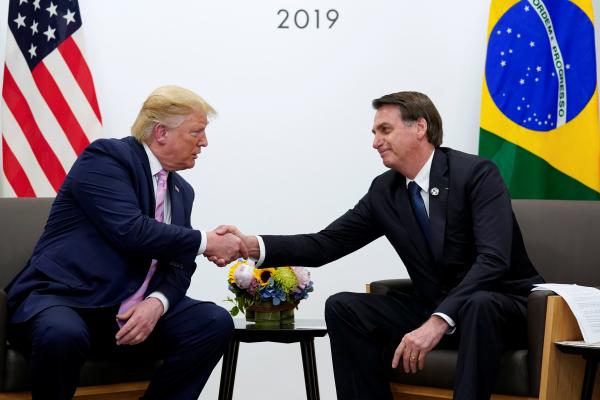Jan 2, 2020
Bolsonaro is forming alliances and shaping policies according to conservative evangelical religion.
Read the Full Article

Already a subscriber? Login

Bolsonaro is forming alliances and shaping policies according to conservative evangelical religion.
